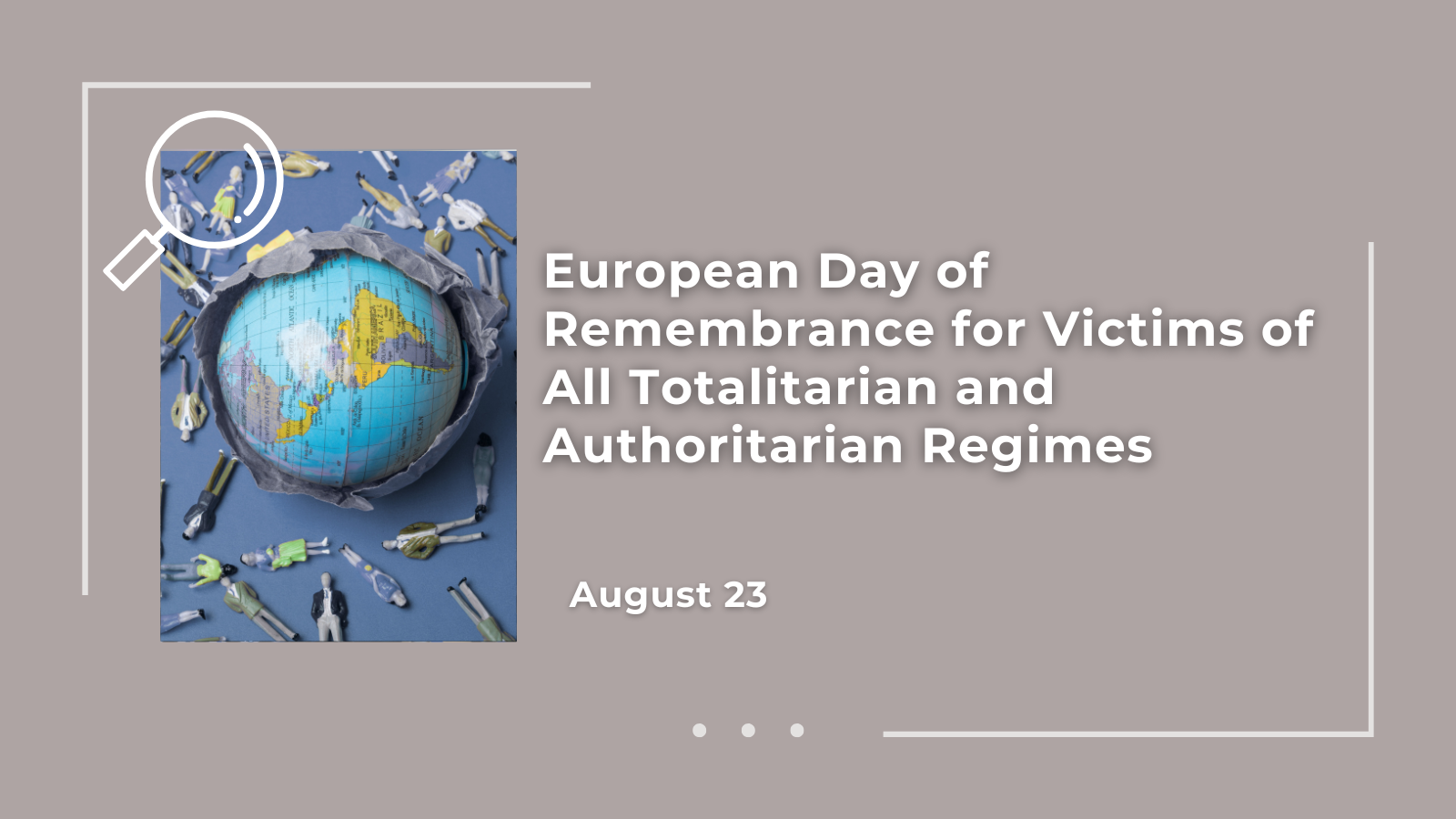
European Day of Remembrance for Victims of All Totalitarian and Authoritarian Regimes: the threat that never rests
Commemorating the victims of Nazism and Stalinism today is essential. Not only because the victims and survivors of such systems of hatred and repression deserve it, but also because we are witnessing a rise in extremist rhetoric in Europe that is very reminiscent of that which was promulgated on the continent during the 20th century.
Discourse and policies in which many people had no place, could not have their own opinion or be free to express themselves. People who, shortly after the seeds of hatred and mistrust had been sown, were massacred, discriminated against and repressed for belonging to a religion, for having a different origin from the majority or for opposing these violent and hate-filled ideas.
It was not only National Socialism under Adolf Hitler that brutally repressed people and murdered them in concentration camps. This also happened during the Stalinist regime in Eastern European countries when Joseph Stalin imprisoned and disappeared all those who opposed his form of government.
However, it took time for this to be understood in Europe, which led to different stages in the process of constructing memory until the crimes of Stalinism were equated with the crimes of Nazism.
The first stage took place in the post-war period, after the Second World War. This stage focused on the development of transitional justice and the universalisation of human rights, until the signing of the Treaty of Rome in 1957. The importance and necessity of protecting human rights and guaranteeing them in order to prevent another situation similar to that which occurred during the world wars was highlighted.
In a second stage, with the beginning of the Cold War, mention of memory in Europe became non-existent. Some public policies on memory were developed at the national level, but there was no reference to it at the European Community level. National memories focused on their respective ‘myths of resistance’, without giving space to the victims, while silence reigned over the Holocaust at the supranational level.
At the beginning of the 1970s, the paradigm began to change, giving rise to a third stage, marked by its peak with the end of the Cold War. The demands for truth, justice and truth from victims and survivors began to intensify, opening up spaces and processes for the construction of memory focused on them and based on citizen participation.
It was during this stage, with one of the greatest crises of legitimacy in the European community, that arguments began to be sought to justify the existence of the European project alongside greater community integration. Thus, it was understood that a solid European identity was the best way to continue deepening European integration, not only economically but also culturally and socially.
In the 2000s, the fourth stage began, in which activities related to memory proliferated, not only at the national level, but also at the local and transnational levels. Thus, with the integration of Eastern European countries into the European Union, proposals began to be made for the inclusion of a day of commemoration to remember the victims of stalinism at the European level, with the intention of equating all totalitarian regimes in Europe.
Thus, in 2005, the European Parliament, in its Resolution on the Future of Europe Sixty Years after the Second World War, recognised the extent of the suffering and injustice caused by Stalinism. Such was its position that it designated 23 August as the European Day of Remembrance for Victims of Nazism and Stalinism, a date that has evolved into the European Day of Remembrance for Victims of All Totalitarian and Authoritarian Regimes, which is currently celebrated.
Since then, the European Parliament has passed numerous resolutions dedicated to memory and education about European history that include this trend: the Resolution on European conscience and totalitarianism, of April 2009; the Resolution on the importance of European historical memory for the future of Europe, of September 2019; and the Resolution on European historical conscience, of January 2024.
Furthermore, the fact that the commemoration of this date has evolved to become the European Day of Remembrance for Victims of All Totalitarian and Authoritarian Regimes allows us to include other regimes in the collective imagination, such as Francoism in Spain, Salazarism in Portugal and the dictatorship of the Colonels in Greece, which also form part of European democratic identity and memory.
By including all the totalitarian and authoritarian experiences that took place in Europe during the 20th century, we can understand the scale of what happened and fight more consciously and actively against the anti-democratic threats that loom over our societies today. Because authoritarianism and totalitarianism can take many forms today, and it is our responsibility as European citizens to remember what happened so that we can recognise if it happens again.
Nadia Gayoso, responsible for the democratic memory area in FIBGAR



